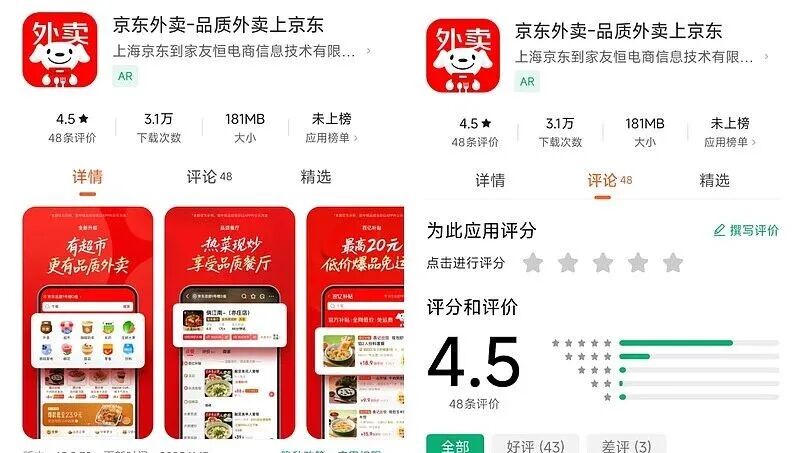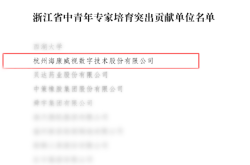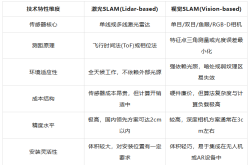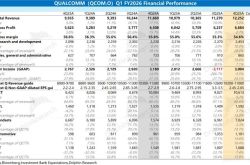JD.com Takes One Path, Alibaba Another
![]() 11/24 2025
11/24 2025
![]() 500
500

Whether taking one path or another, the ultimate objective remains singular.
Produced by | Xinpinlue Finance Author | Wu Wenwu Image Source | Internet As 2025 nears its end, the competitive landscape among internet behemoths remains intense. JD.com and Alibaba, the two titans of e-commerce, are charting divergent courses in the development of their business apps.
01
JD.com Takes One Path, Alibaba Another
Xinpinlue Finance has observed that JD.com and Alibaba, the two e-commerce giants, have recently unveiled major strategies that are brewing beneath the surface. However, their approaches to business platforms or apps appear to be vastly different. Let's first examine JD.com's significant move. On November 17th, at the JD.com Wine Tasting Event held in Sanya, Liu Qiangdong, the founder and chairman of JD.com's board of directors, announced the official launch of the standalone JD.com Food Delivery App. Regarding the rationale behind launching a dedicated food delivery app, Liu Qiangdong explained that initially, many users searched for 'JD.com Food Delivery' but found no standalone app, leaving them unable to locate JD.com's food delivery service. Based on user demand, we have independently launched the JD.com Food Delivery App.
The introduction of the JD.com Food Delivery App will ultimately enhance convenience for frequent food delivery users. Food delivery represents a new business venture that JD.com has vigorously pursued this year. Market analysts had anticipated that JD.com would launch a dedicated food delivery app once the business matured, but its official debut came somewhat earlier than expected. Simultaneously, the market is also focusing on JD.com's use of food delivery as a gateway to seek greater business synergy and expand its local services business. On the same day, JD.com also announced the launch of JD Reviews, which it claims is primarily driven by an artificial intelligence large model. Alongside this, it introduced the JD Real Rankings, which function similarly to Meituan's Dianping and Gaode's Street Scanning Rankings. Liu Qiangdong also emphasized that JD.com's core principle for its reviews and rankings business is to never commercialize it. On the same day, JD.com officially announced the launch of its freshly brewed beverage brand, Qixian Coffee, which primarily uses fresh milk. Currently, Qixian Coffee has taken the lead in launching in Beijing, expanding at a rate of 3 to 5 new stores per week. It is expected to cover the main urban areas of Beijing by the end of this year, aiming to compete with Luckin Coffee and Cotti Coffee. Now, let's shift our focus to Alibaba. On the last day of April this year, Alibaba announced its entry into the food delivery arena by upgrading Taobao Instant Delivery and establishing a primary traffic entrance on the Taobao App homepage to further develop its local services business. On September 10th this year, Alibaba's Gaode Maps officially launched the world's first rankings generated based on user behavior, the Gaode Street Scanning Rankings, and distributed over 1 billion yuan in subsidies. Gaode Maps has demonstrated remarkable growth and achieved outstanding results. Since November this year, there have been multiple market rumors that Alibaba's food delivery platform, Ele.me, will be renamed Taobao Instant Delivery. Xinpinlue Finance has learned that these are currently just market rumors, suggesting that Alibaba may want to elevate the strategic position of Taobao Instant Delivery further. It is evident that JD.com's current approach to new businesses involves launching a standalone app for JD.com Food Delivery and JD Reviews, allowing each business to have its own app and traffic entrance, adopting a decentralized strategy. In contrast, Alibaba, whether through upgrading Taobao Instant Delivery, later launching the Street Scanning Rankings on Gaode Maps, or potentially introducing a new Taobao Instant Delivery App in the future, seems to be focusing on business upgrades, integration, and centralization within a single business app, adopting a relatively centralized strategy. Clearly, in terms of developing business apps, it can be summarized as: JD.com takes one path, Alibaba another, with vastly different directions.
02
JD.com and Alibaba: Pursuing Distinct Agendas
Now, let's delve deeper and explore why JD.com and Alibaba have adopted different strategies for their business apps. The key lies in the fact that both parties have their own agendas and needs. First, let's consider why JD.com suddenly entered the food delivery market in the first half of the year, directly challenging Meituan. One key reason is that JD.com faces significant growth pressure in its traditional e-commerce business and needs new business narratives. JD.com's focus on the food delivery business stems from the fact that food delivery is a high-frequency user demand service and a massive traffic gateway. By quickly attracting users through subsidies, coupons, and other means, JD.com has brought in new traffic. According to JD.com's recently released Q3 financial report, both its active user count and user purchase frequency have increased by over 40% year-on-year. JD.com's annual active users have also surpassed 600 million. Food delivery user conversion: The conversion rate of new users in the same group is close to 50%, indicating a high user retention rate. Although JD.com's new businesses are still incurring losses, at least in terms of driving traffic and increasing platform active users, JD.com has achieved its interim goals. It is evident that the exploratory phase of JD.com Food Delivery has ended, and it is now in a phase of normalized development. JD.com has also reached a point where it needs to tell new stories to the market, hence the launch of the JD.com Food Delivery App and the upcoming full launch of JD Reviews. JD.com's new agenda is to maintain and retain existing users of the main JD.com App while attracting loyal users and fans of JD.com Food Delivery through independent business apps, creating a new wave of traffic. In the future, when JD.com develops its reviews business, it similarly aims to further attract and engage C-end users by entering the local services business, with the key focus still being on traffic, as business opportunities lie behind traffic. Now, let's look at Alibaba. It is evident that Alibaba's participation in the food delivery battle this year, its focus on instant delivery business, and its local services business have a clear aggregation effect, aiming to build super business apps. In terms of developing e-commerce and instant delivery businesses, using the food delivery battle as an entry point and upgrading Taobao Instant Delivery, Alibaba has also achieved remarkable results. The activity level of Taobao Instant Delivery has shown a significant and sustained increase, positively driving user scale, order volume, and overall platform growth.
In August 2025, the monthly active users of Taobao Instant Delivery increased by 25% year-on-year. QuestMobile data shows that the monthly active user peak of the Taobao App's instant delivery entrance reached 370 million in July. As of October 2025, the scale of new users on Taobao Instant Delivery who 'have ordered food delivery but not made e-commerce purchases' has exceeded 100 million, becoming an important source of new user acquisition for brands. Taobao Instant Delivery reached a daily order volume peak of 120 million in August, with the daily order scale of the food delivery market growing from 100 million in May to over 200 million. In terms of retail orders, during the 2025 Double 11 period, Taobao Instant Delivery's retail orders increased by over 2 times year-on-year. Alibaba CEO Wu Yongming once stated, 'We have heavily invested in instant retail business and quickly achieved interim results, winning consumer mindshare.' Similarly, Gaode Maps launched the Street Scanning Rankings. On the first day of its launch on September 10th, the user scale exceeded 40 million, growing to 400 million users within 23 days. During this year's National Day holiday, Gaode achieved a record-breaking 360 million DAU, with the Street Scanning Rankings reaching 400 million users. It is evident that Alibaba has significantly increased its user base and platform activity in the short term by investing resources such as traffic, subsidies, and coupons into strategic business platform apps like Taobao Instant Delivery and Gaode Maps, generating corresponding transaction volumes and making the respective apps more powerful. Alibaba has long laid out a diversified business system and has only vigorously pursued it this year, quickly forming aggregation and traffic multiplication effects, with its comprehensive impact growing stronger. Previously, JD.com focused mainly on e-commerce business and did not have an advantage in business diversification. This year, it has started to focus on food delivery and is now launching JD Reviews, with a growing and accelerating diversified business layout. Clearly, JD.com aims to become a comprehensive super internet giant.
03
Ultimately, a Singular Goal
Internet giants all possess massive traffic pools and user bases numbering in the hundreds of millions. In the era of traditional e-commerce, giants like JD.com and Alibaba were the biggest beneficiaries, representing internet platforms in the PC e-commerce era and later in the mobile internet era. With the rise of Pinduoduo, known for its low prices and group-buying discounts, in the mobile internet era, established e-commerce giants like JD.com and Alibaba felt the pressure. Subsequently, short-video platforms like Douyin and Kuaishou introduced concepts like live-streaming e-commerce and interest-based e-commerce, each with their own traffic acquisition and retention strategies. The crux of internet business competition still lies in traffic competition. Overall, internet giants have long since entered an era of inventory (contextually meaning 'existing user base' or 'market saturation'), and this year's food delivery and instant delivery battles among JD.com, Alibaba, and Meituan are all attempts to find new growth within the existing user base. From the perspective of internet business platform development, it can be divided into three stages, which repeatedly alternate and update. This development logic remains unchanged. In the first stage, whether launching new apps or developing existing ones, internet platforms focus on acquiring and attracting users through substantial subsidies, cultivating user habits, and increasing platform activity. The three internet giants are willing to offer significant subsidies to acquire and attract users, as users are drawn to platforms with more coupons, greater discounts, and higher subsidies. Zhu Keli, the founding dean of the National Institute for New Economy Research, stated in a media interview that platforms' willingness to expand market scale through subsidies is commendable, as it not only represents commercial investment but also directly stimulates domestic demand, positively impacting consumer confidence and employment. In the second stage, user retention and long-term active usage become crucial. After intense subsidy battles and user acquisition wars, internet platforms' attractiveness to users diminishes. At this point, user retention and the active usage of long-term users become key. For example, in the third quarter, when JD.com reduced its food delivery subsidies, many users naturally turned their attention to Taobao Instant Delivery or Meituan, which is normal user behavior. Therefore, internet platforms need to continuously tell new stories, engage in marketing, host events, provide subsidies, and distribute coupons. In the third stage, continuously finding new growth within the existing user base is an ongoing process, and it tests the internet platforms' continuous operational capabilities. For instance, JD.com has now launched a standalone app for food delivery and may even launch a JD Instant Delivery App in the future. Similarly, the market has repeatedly speculated about, but not yet seen, the official launch of Taobao Instant Delivery, which may indicate that Taobao and Ele.me are conducting gray-scale testing or internal testing, waiting for the right time to make an official announcement. From Xinpinlue Finance's perspective, all major internet giants are seeking new growth within their existing user bases. Ultimately, it is crucial not only to maintain their original core businesses and traffic pools but also to differentiate their platforms, which is a challenging task. The three major internet giants have invested significant funds and resources into their food delivery businesses, and the corresponding data is reflected in their financial reports. They still need to work hard to recover losses and make up for reduced revenue. It is not surprising that they will introduce more new initiatives in the future, even exceeding market expectations. In terms of app business development strategies, JD.com takes one path, and Alibaba another, but their ultimate goal is the same: to find new growth, tell new stories, keep pace with the times, and win the competition in future internet business.
The cover image and accompanying pictures of this article are sourced from the internet, with copyright belonging to their respective owners. This article does not constitute any investment advice.






